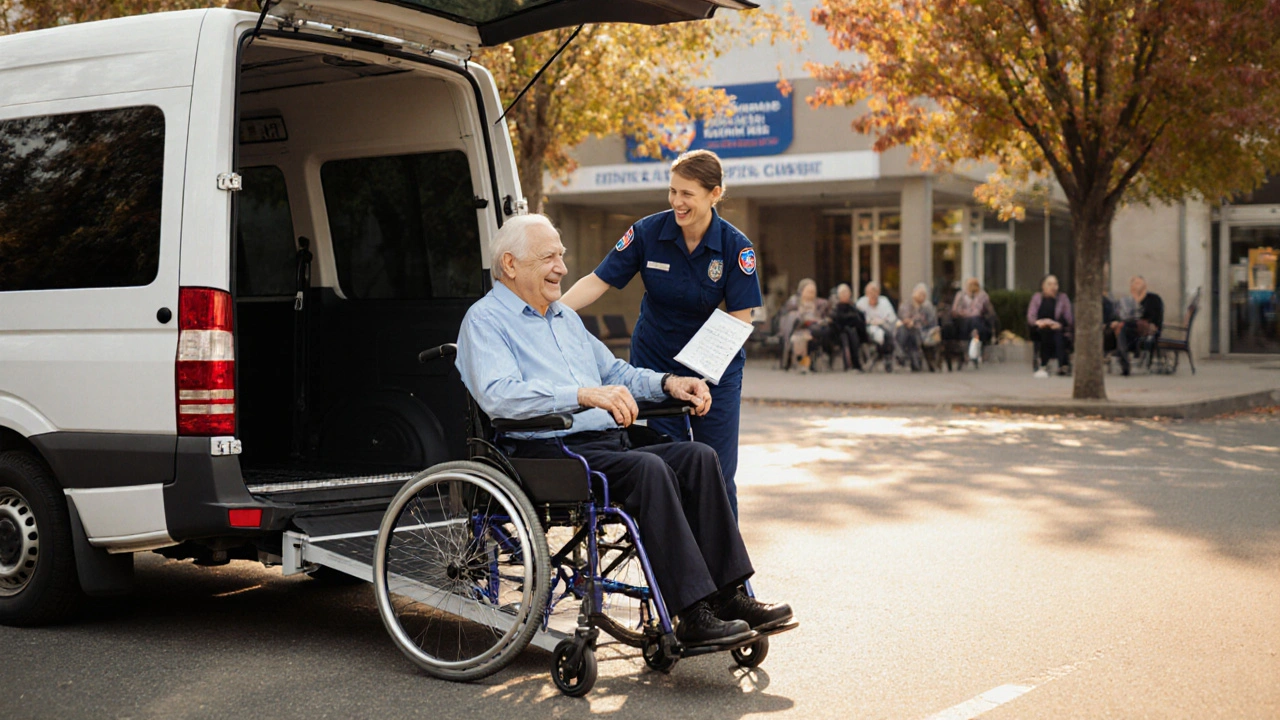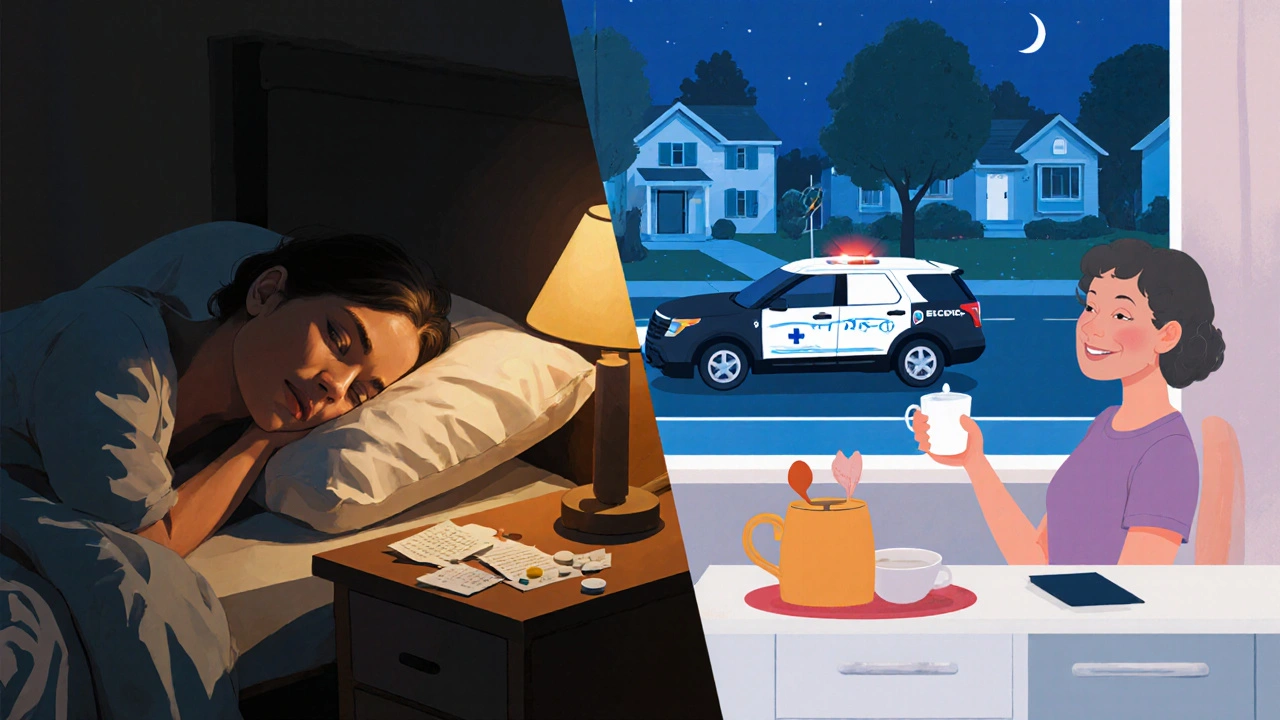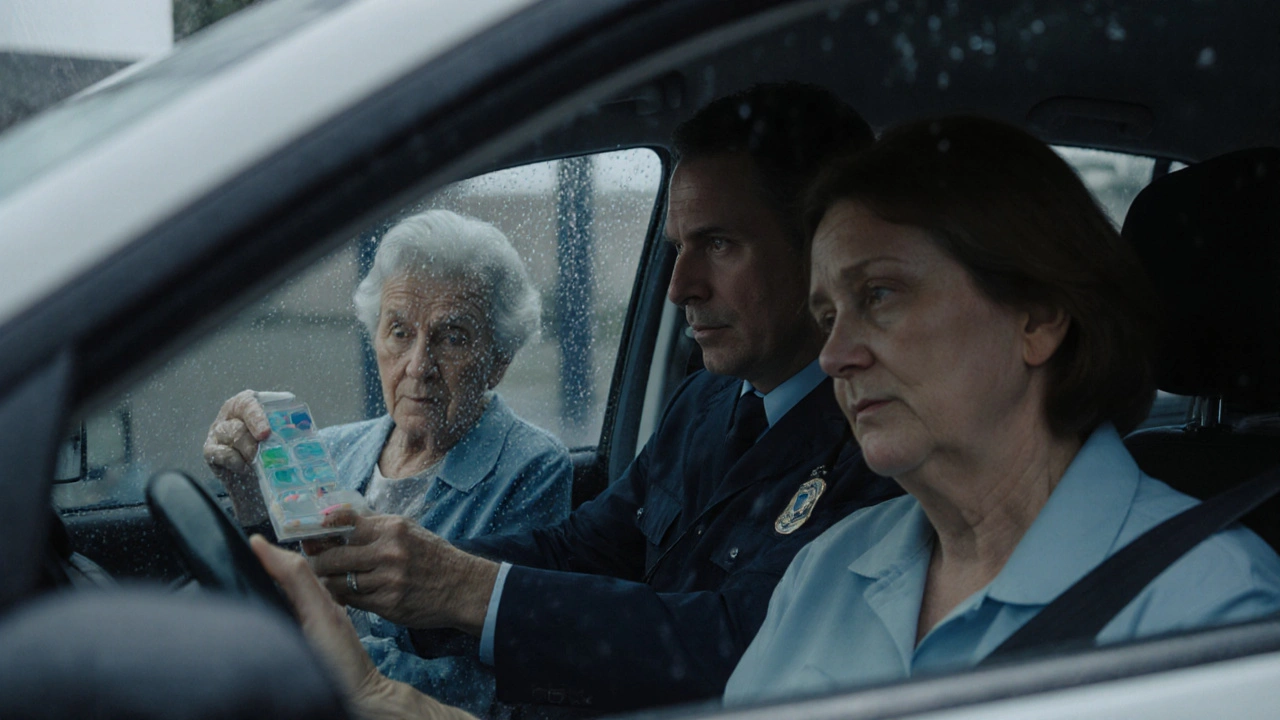Every week, thousands of family caregivers in Australia skip meals, miss work, or lose sleep just to drive a loved one to a doctor’s appointment. It’s not glamorous. It’s not heroic. It’s just… necessary. But what happens when that drive becomes too much? When the 70-year-old with Parkinson’s can’t sit still long enough to get in the car? When the 82-year-old with dementia forgets where the clinic is-and starts crying in the parking lot? That’s when medical escort services stop being a luxury and become a lifeline.
Why Routine Checkups Are Harder Than They Look
Think of a routine checkup like a grocery run. Simple, right? But for someone with mobility issues, chronic pain, or cognitive decline, it’s a full-day mission. Getting dressed takes 45 minutes. Walking to the car is risky. The clinic is 12 kilometers away, and public transport doesn’t run on weekends. Once there, they need help filling out forms, remembering questions to ask, or even just sitting in a waiting room without panicking.
And then there’s the caregiver. They’re the one holding the pill organizer, juggling work emails, and trying not to cry when their parent says, “I don’t need help-I’m fine.” But they’re not fine. And neither is the caregiver.
Medical escort services aren’t about replacing family. They’re about giving families a break without guilt. These services are staffed by trained professionals-often with backgrounds in nursing, paramedicine, or aged care-who know how to handle mobility aids, medication schedules, and emotional outbursts. They don’t just drive. They listen. They adapt. They stay calm when the person they’re transporting doesn’t.
When to Consider Hiring a Medical Escort
You don’t need to wait until things fall apart. Here are five clear signs it’s time to call a service:
- Your loved one refuses to go alone-even with a phone. Fear of getting lost, falling, or being ignored at the clinic is real. A trained escort reduces anxiety for both of you.
- They have multiple appointments in one day-blood tests, physio, and a doctor’s visit all on the same morning. No family member can reasonably manage that without quitting work or burning out.
- They’re on oxygen, a walker, or a wheelchair. Most taxis won’t take them. Public transport won’t accommodate them. Medical escorts have vehicles with ramps, lifts, and secure restraints.
- They forget medications or instructions. Escorts carry printed care plans, double-check prescriptions, and even call the clinic to confirm details. This isn’t babysitting-it’s medical coordination.
- You’re missing work, skipping meals, or feeling resentful. That’s not normal. That’s burnout. And it’s dangerous. Caregivers who are exhausted are more likely to make mistakes-and less likely to notice when their loved one’s condition worsens.
One woman in Fremantle told me her mother had 11 appointments in a single month. She took her to every single one. By the end, she couldn’t remember what day it was. She hired a medical escort for the last three. Within two weeks, her sleep improved. Her blood pressure dropped. Her mother started smiling again in the car.
What Medical Escorts Actually Do (It’s More Than Driving)
Some people think a medical escort is just a driver with a badge. That’s like saying a nurse is just someone who gives shots. The real value is in the details.
They arrive 10 minutes early to help with transfers. They bring a backup oxygen tank if needed. They carry a small first aid kit and know how to respond to dizziness or fainting. They communicate with clinic staff using the patient’s medical summary-often printed and laminated by the family. They don’t just wait in the car. They walk in with the patient, help them get seated, and sometimes even stay for the first five minutes of the appointment to help explain symptoms.
And when it’s over? They don’t just drive home. They check if the patient took their new meds. They note if the doctor changed the dosage. They text the caregiver a quick update: “Mom took her blood pressure meds. Doctor said to cut salt. All good.”
This level of support doesn’t exist in Uber or taxi services. Even private nursing agencies often don’t offer transport. Medical escort services fill that gap. They’re the missing link between home care and clinical care.

How to Choose the Right Service
Not all services are created equal. Here’s what to ask before you hire:
- Are staff trained in dementia and mobility care? Look for certifications like Certificate III in Individual Support or Aged Care.
- Do they use GPS tracking and check-in systems? Reputable services send real-time location updates to family members.
- Can they handle special equipment? Oxygen tanks, wheelchairs, lift chairs-make sure the vehicle is equipped.
- Do they carry insurance? Always ask for proof of public liability and workers’ compensation.
- Can you meet the escort before the first trip? A good service will let you do a trial run or a meet-and-greet. This matters. Trust is everything.
Don’t be afraid to ask for references. Most services have testimonials from other families. Call them. Ask: “Would you use them again?” If the answer isn’t a firm yes, keep looking.
In Perth, services like SafeRide Aged Care Transport is a locally based medical escort service providing door-to-door transportation for seniors and people with disabilities in Western Australia. They use wheelchair-accessible vehicles and employ staff with aged care certifications. and MediTransport WA is a registered NDIS provider offering medical transport services with trained escorts who assist with medication management and clinic communication. are well-established. But don’t just pick the first one you find. Compare their policies, pricing, and availability.
Costs and Funding Options
Prices vary. A single trip might cost $60-$120, depending on distance and complexity. Some services charge hourly rates for longer appointments. It’s not cheap-but it’s cheaper than the cost of burnout.
Here’s how to make it affordable:
- NDIS funding-if your loved one is NDIS-eligible, transport is often covered under “Improved Daily Living” or “Support Coordination.”
- My Aged Care-some home care packages include transport allowances. Ask your care coordinator.
- Local council subsidies-Perth’s metropolitan councils sometimes offer reduced fares for seniors.
- Private health insurance-rare, but a few extras policies cover non-emergency transport.
Don’t assume you can’t afford it. Many families don’t realize they’re already paying for it-in lost wages, stress-related health issues, or hospital visits caused by missed appointments.

What Happens When You Don’t Ask for Help
One man in Joondalup drove his wife with advanced Alzheimer’s to 18 appointments in three months. He didn’t sleep. He stopped exercising. He started forgetting his own medications. One day, he collapsed in the clinic parking lot. He had a mild stroke. His wife was alone in the waiting room, confused and terrified.
That’s not a story of dedication. That’s a story of a system that expects families to break themselves to care for others.
Medical escort services aren’t a sign of failure. They’re a sign of smart planning. They let you be a child, a partner, a sibling-not a taxi driver, nurse, and scheduler all at once.
There’s no shame in asking for help. There’s only shame in waiting until it’s too late.
How to Start the Conversation
Bringing up medical escort services can feel like admitting defeat. It’s not. It’s like saying, “I love you, and I want to keep being here for you-for real.”
Try this:
- “I’ve been thinking about how hard these appointments are for you. I want to make them easier.”
- “There’s a service that helps people get to the doctor without stress. Would you be open to trying one?”
- “I’m not asking you to give up your independence. I’m asking you to let someone else carry the weight for a bit.”
Don’t frame it as taking away control. Frame it as giving them back peace of mind. And give them space to say no. The goal isn’t to force them into a car. It’s to remove the fear so they can say yes when they’re ready.
Are medical escort services only for seniors?
No. While many users are older adults, medical escort services also help people recovering from surgery, those with disabilities, chronic illnesses like MS or Parkinson’s, and even young adults with mental health conditions who find clinic visits overwhelming. The service is for anyone who needs physical or emotional support getting to and from medical appointments.
Can I use a medical escort for emergency trips?
No. Medical escort services are for non-emergency, scheduled appointments. If someone is having a heart attack, stroke, or severe injury, call 000 immediately. These services don’t replace ambulances-they complement them by handling routine care so emergency services aren’t overwhelmed by preventable issues.
Do medical escorts give medications?
They don’t administer meds, but they can help manage them. Escorts carry pill organizers, remind patients when to take pills, and check if prescriptions were filled. Some services work with pharmacists to ensure meds are ready before the trip. They’re trained to spot if a dose was missed or if side effects are showing up.
How far in advance should I book a medical escort?
Book at least 48 hours ahead for regular appointments. For multiple appointments in one day or trips outside standard hours, book a week ahead. Last-minute bookings are often possible, but they may cost more or not be available. Consistency matters-booking the same escort for recurring visits builds trust and improves care.
Can I ride along with my loved one during the trip?
Yes, most services allow a family member to ride along at no extra cost. Some families do this for the first few trips to ease their loved one into the service. After that, many choose to let the escort handle it alone-giving the patient space to build confidence and reducing caregiver stress. It’s your choice.
Next Steps: What to Do Today
If you’re reading this and thinking, “I need this,” here’s what to do before the week ends:
- Write down the next three medical appointments for your loved one.
- Call one local medical escort service and ask about their pricing, insurance, and staff training.
- Ask your GP or care coordinator if transport is covered under My Aged Care or NDIS.
- Book a trial trip-even just to the pharmacy. See how it feels.
- Then, take a deep breath. You’re not giving up. You’re choosing to care better.
Caregiving doesn’t have to be a marathon you run alone. There’s help. And it’s waiting.
